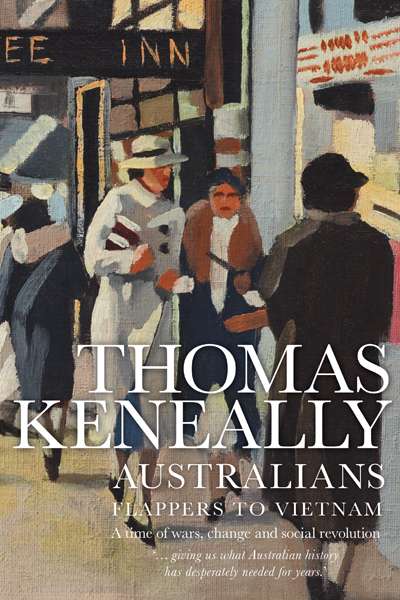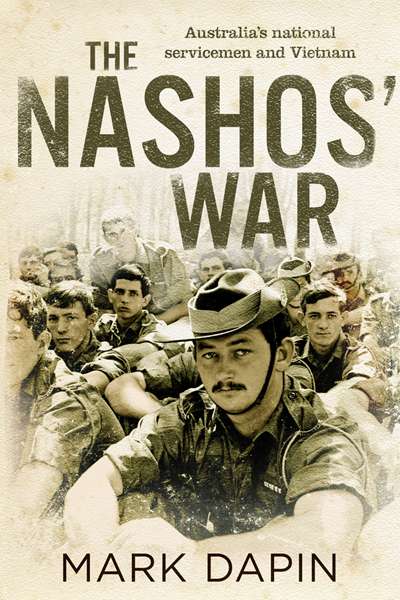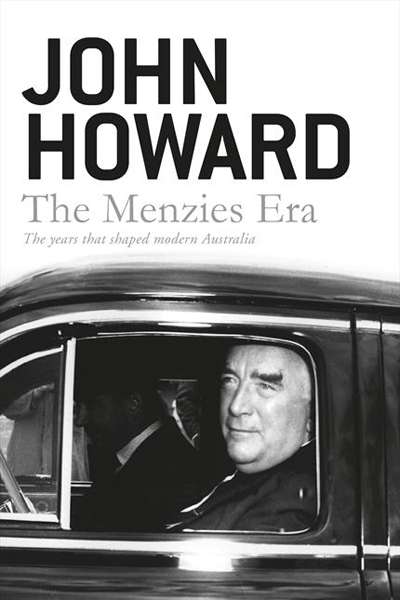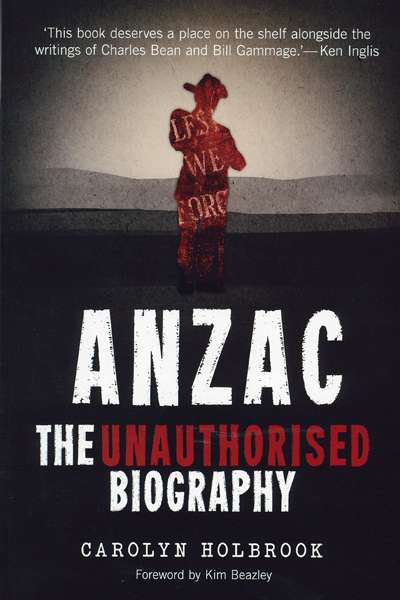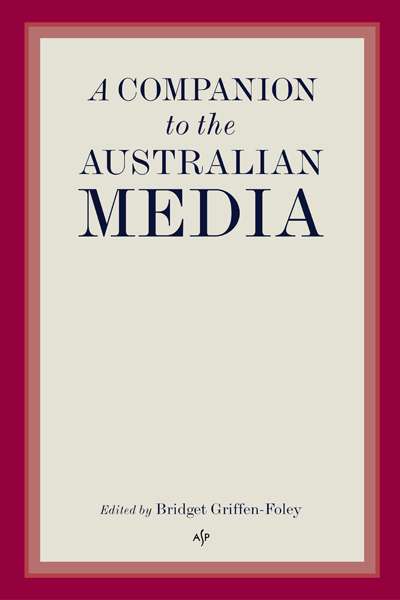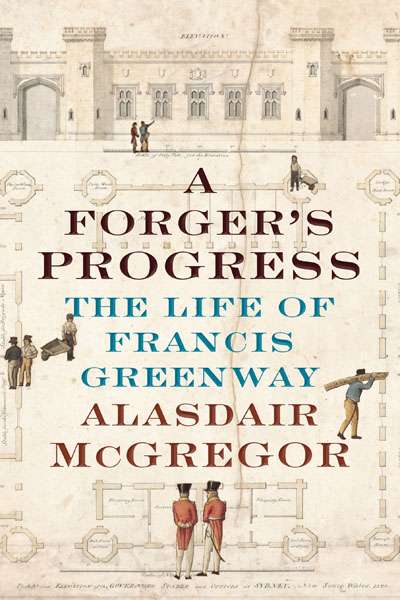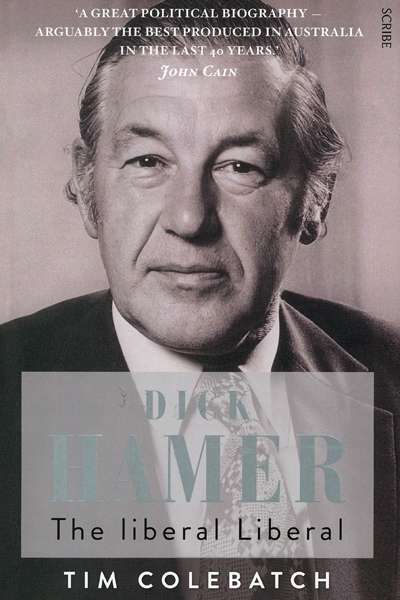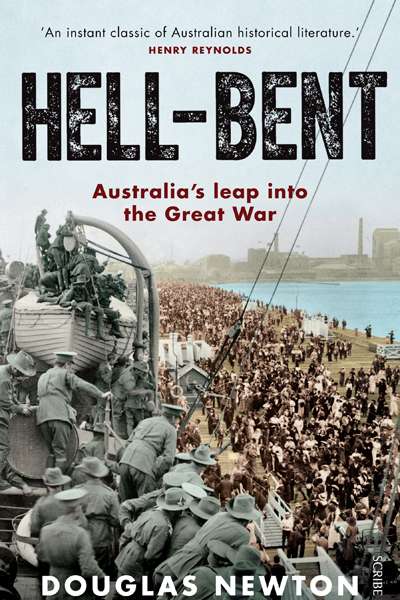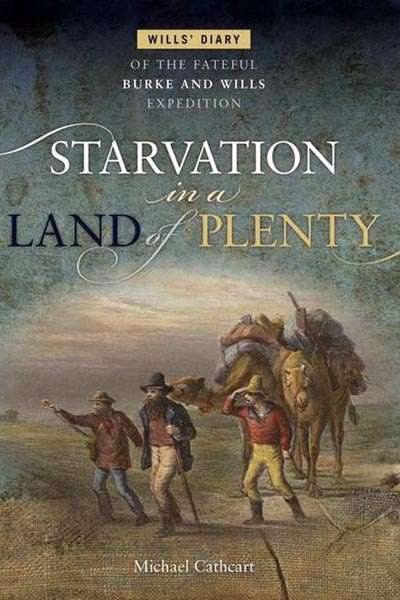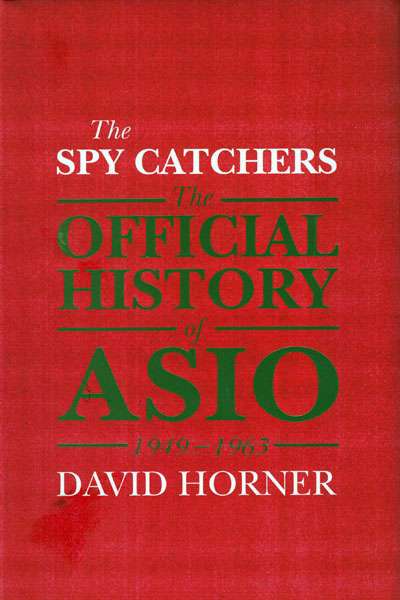Australian History
Australians, Volume 3: Flappers to Vietnam by Thomas Keneally
The European settlement of Australia, the colony’s earliest years, its expansion into, and alienation of, lands inhabited for millennia by the first Australians: these are the great and abiding themes of the Australian story. Together with the rather overdone nationalist narratives of war rekindled each and every Anzac Day, they are the focal points of popular historical memory. As a result, most Australians know a little about the First Fleet, the continent’s charting and exploration, the tragedy of first contact, and the heroic lost cause of Gallipoli.
... (read more)The Nashos' War: Australia's National Servicemen and Vietnam by Mark Dapin
In late April, the commemorations of the centenary of the Gallipoli landing will inevitably overshadow another significant anniversary in Australia’s military, political, and social history. On 29 April 1965, fifty years to the week after the landing at Anzac Cove, the Menzies government announced the commitment of an Australian infantry battalion to the growing conflict in Vietnam. That announcement led to Australia’s longest and third-largest military commitment of the twentieth century, surpassed only by the two world wars. While its political and social impacts on Australia did not match those of World War I, they should not be overlooked. The controversies surrounding Vietnam, and all that it was taken to symbolise, have given rise to numerous myths, many still current and influencing the way Australia looks at our past, present, and potential future military commitments.
... (read more)The Menzies Era: The years that shaped modern Australia by John Howard
John Howard has long been concerned with countering what he regards as the domination of Australian historical writing by the left. His project was initiated before he gained the prime ministership, most notably in his Menzies Lecture of 1996, in which he claimed that most of the distinctiveness and achievements of Australian politics were grounded in the liberal tradition. It continued during the ‘history wars’ from 1996 to 2007 – a subsidiary element in his largely successful attempt to reshape the contemporary understanding of liberal individualism. His massive new book on Menzies and his times is the summa of this enterprise.
... (read more)The resurgence of the Anzac legend in the last quarter of the twentieth century took many Australians by surprise. In the aftermath of the Vietnam War, it seemed that the rituals of Anzac Day would wither and fade away as the generations who fought the two world wars died. It proved not to be so. ‘Anzac’, to use the common shorthand, now dominates the national memory of war as strongly as it ever did, although it is not the same legend as it was 100 years ago. Many commentators see this ‘return’ of Anzac as a spontaneous upwelling of national sentiment, a natural and appropriate honouring of those who have died in Australia’s defence. Critics, however, discern a more deliberate orchestration of public sentiment by successive governments, which, for a variety of political purposes, have ‘militarised’ Australian history and sidelined other competing narratives of Australia’s development.
... (read more)A Companion to the Australian Media edited by Bridget Griffen-Foley
This impressive collection of knowledge ranges from the history of newspapers and the biographies of radio and television stars to the rise of media owners (the first of whom, Andrew Bent, arrived as a convict in 1812). It covers war reporting, food and sports coverage, children’s radio, blogging and podcasting, and even the life of the radio serial Blue Hills, which ran from 1949 to 1976.
... (read more)A Forger’s Progress: The life of Francis Greenway by Alasdair McGregor
The twenty or so elegant Georgian buildings designed by Francis Greenway that stand in Sydney today are a civilising presence. Yet these represent less than a quarter of his output. The destruction has been wanton and impoverishing.
Greenway was born in November 1777, near Bristol. His father was a stonemason and builder, as had been generations of Greenways. Nothing is known of his early years, but, judging by his knowledge of literature, he probably had a respectable education. He worked in the Greenway family’s mason’s yard and spent time in London from 1797, attached in some way – maybe as an apprentice – to the architect John Nash. By 1805, Greenway was back in Bristol working with his brothers, and by 1809 he was bankrupt.
... (read more)Dick Hamer: The liberal Liberal by Tim Colebatch
Rupert (‘Dick’) Hamer proved to be one of Australia’s most innovative premiers. One sign of his unusual prestige is that this history of his life and times has perhaps been publicly praised more by Labor leaders than by his own Liberal colleagues.
Hamer’s family background was in the church, law, business, and politics. His paternal grandfather was the minister of the wealthy Independent Church (now called St Michael’s) on Collins Street, where he was distinguished for his highbrow sermons and the astonishingly high salary he received. Hamer was born in 1916 and was formally christened Rupert after a relative who had died at Gallipoli the previous year. He was a studious boarder at Geelong Grammar, eventually winning first class honours in three languages – Latin, French, and Ancient Greek. A school friend described him as never ‘fussed or flustered’. Those qualities remained with him. He could come home to suburban Canterbury after a turbulent week in parliament and sleep like a rock, then dig happily in the garden next morning.
... (read more)Hell-Bent: Australia’s leap into the Great War by Douglas Newton
Reading about the ‘khaki election’ of 1914 in Douglas Newton’s Hell-Bent evokes a sense of déjà vu in 2014, as Australia embarks on another war in the Middle East. During the campaign of 1914, Prime Minister Joseph Cook and Labor leader Andrew Fisher jostled to prove their loyalty to Britain and their enthusiasm for the impending war. Fisher’s efforts to match and outdo the conservative leader for patriotism bring to mind Opposition Leader Bill Shorten’s willingness to support the government’s military engagement in Syria and Iraq, and its amendments to national security laws. Plus ça change …
... (read more)Starvation in a Land of Plenty: Wills’ diary of the fateful Burke and Wills expedition by Michael Cathcart
The white explorers who first penetrated the interior of this continent were exceptional men. White Australians of the time considered them heroes, performing an essential role in identifying opportunities for exploitation, settlement, and commerce. Mostly, the explorers were heroic – determined, tough, single-minded, and stoic in the face of enormous hardship. They also needed bushcraft, that elusive ability to ‘read’ the landscape, the weather, vegetation communities, and animal behaviour, so as to improve the quality of the daily judgements needed for survival. Success under these conditions requires a clear vision and a strong, intelligent, and organised leader. John McDouall Stuart and Augustus Gregory come to mind as examples; Robert O’Hara Burke does not.
... (read more)The Spy Catchers: The official history of ASIO 1949–1963, Volume One by David Horner
In the interests of national security, my luggage was recently searched at Los Angeles airport. The culprit: Spy Catchers. The uncorrected proof copy was so bulky that it triggered an alert. I declined to tell the Customs and Border Protection officer (in no mood for irony) that one chapter in the offending item was entitled ‘Keeping out Undesirables’. David Horner’s first volume in the history of ASIO is a big book – big on detail, broad in scope, and, overall, impressive in achievement.
... (read more)

